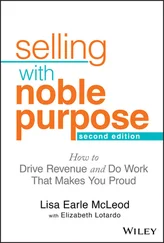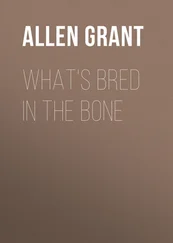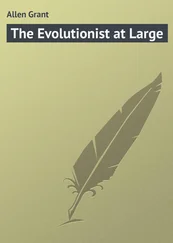Grant Allen - Hilda Wade, a Woman with Tenacity of Purpose
Здесь есть возможность читать онлайн «Grant Allen - Hilda Wade, a Woman with Tenacity of Purpose» — ознакомительный отрывок электронной книги совершенно бесплатно, а после прочтения отрывка купить полную версию. В некоторых случаях можно слушать аудио, скачать через торрент в формате fb2 и присутствует краткое содержание. Жанр: foreign_prose, literature_19, foreign_antique, на английском языке. Описание произведения, (предисловие) а так же отзывы посетителей доступны на портале библиотеки ЛибКат.
- Название:Hilda Wade, a Woman with Tenacity of Purpose
- Автор:
- Жанр:
- Год:неизвестен
- ISBN:нет данных
- Рейтинг книги:3 / 5. Голосов: 1
-
Избранное:Добавить в избранное
- Отзывы:
-
Ваша оценка:
- 60
- 1
- 2
- 3
- 4
- 5
Hilda Wade, a Woman with Tenacity of Purpose: краткое содержание, описание и аннотация
Предлагаем к чтению аннотацию, описание, краткое содержание или предисловие (зависит от того, что написал сам автор книги «Hilda Wade, a Woman with Tenacity of Purpose»). Если вы не нашли необходимую информацию о книге — напишите в комментариях, мы постараемся отыскать её.
Hilda Wade, a Woman with Tenacity of Purpose — читать онлайн ознакомительный отрывок
Ниже представлен текст книги, разбитый по страницам. Система сохранения места последней прочитанной страницы, позволяет с удобством читать онлайн бесплатно книгу «Hilda Wade, a Woman with Tenacity of Purpose», без необходимости каждый раз заново искать на чём Вы остановились. Поставьте закладку, и сможете в любой момент перейти на страницу, на которой закончили чтение.
Интервал:
Закладка:
I went; and what is more, I heard Miss Sissie sing at her hall—a pretty domestic song, most childish and charming. She impressed me not unfavourably, in spite of what Hilda said. Her peach-blossom cheek might have been art, but looked like nature. She had an open face, a baby smile and there was a frank girlishness about her dress and manner that took my fancy. “After all,” I thought to myself, “even Hilda Wade is fallible.”
So that evening, when her “turn” was over, I made up my mind to go round and call upon her. I had told Cecil Holsworthy my intentions beforehand, and it rather shocked him. He was too much of a gentleman to wish to spy upon the girl he had promised to marry. However, in my case, there need be no such scruples. I found the house and asked for Miss Montague. As I mounted the stairs to the drawing-room floor, I heard a sound of voices—the murmur of laughter; idiotic guffaws, suppressed giggles, the masculine and feminine varieties of tomfoolery.
“YOU’D make a splendid woman of business, YOU would!” a young man was saying. I gathered from his drawl that he belonged to that sub-species of the human race which is known as the Chappie.
“Wouldn’t I just?” a girl’s voice answered, tittering. I recognised it as Sissie’s. “You ought to see me at it! Why, my brother set up a place once for mending bicycles; and I used to stand about at the door, as if I had just returned from a ride; and when fellows came in, with a nut loose or something, I’d begin talking with them while Bertie tightened it. Then, when THEY weren’t looking, I’d dab the business end of a darning-needle, so, just plump into their tires; and of course, as soon as they went off, they were back again in a minute to get a puncture mended! I call THAT business.”
A roar of laughter greeted the recital of this brilliant incident in a commercial career. As it subsided, I entered. There were two men in the room, besides Miss Montague and her mother, and a second young lady.
“Excuse this late call,” I said, quietly, bowing. “But I have only one night in Scarborough, Miss Montague, and I wanted to see you. I’m a friend of Mr. Holsworthy’s. I told him I’d look you up, and this is my sole opportunity.”
I FELT rather than saw that Miss Montague darted a quick glance of hidden meaning at her friends the chappies; their faces, in response, ceased to snigger and grew instantly sober.
She took my card; then, in her alternative manner as the perfect lady, she presented me to her mother. “Dr. Cumberledge, mamma,” she said, in a faintly warning voice. “A friend of Mr. Holsworthy’s.”
The old lady half rose. “Let me see,” she said, staring at me. “WHICH is Mr. Holsworthy, Siss?—is it Cecil or Reggie?”
One of the chappies burst into a fatuous laugh once more at this remark. “Now, you’re giving away the whole show, Mrs. Montague!” he exclaimed, with a chuckle. A look from Miss Sissie immediately checked him.
I am bound to admit, however, that after these untoward incidents of the first minute, Miss Montague and her friends behaved throughout with distinguished propriety. Her manners were perfect—I may even say demure. She asked about “Cecil” with charming naivete. She was frank and girlish. Lots of innocent fun in her, no doubt—she sang us a comic song in excellent taste, which is a severe test—but not a suspicion of double-dealing. If I had not overheard those few words as I came up the stairs, I think I should have gone away believing the poor girl an injured child of nature.
As it was, I went back to London the very next day, determined to renew my slight acquaintance with Reggie Nettlecraft.
Fortunately, I had a good excuse for going to visit him. I had been asked to collect among old Carthusians for one of those endless “testimonials” which pursue one through life, and are, perhaps, the worst Nemesis which follows the crime of having wasted one’s youth at a public school: a testimonial for a retiring master, or professional cricketer, or washerwoman, or something; and in the course of my duties as collector it was quite natural that I should call upon all my fellow-victims. So I went to his rooms in Staples Inn and reintroduced myself.
Reggie Nettlecraft had grown up into an unwholesome, spotty, indeterminate young man, with a speckled necktie, and cuffs of which he was inordinately proud, and which he insisted on “flashing” every second minute. He was also evidently self-satisfied; which was odd, for I have seldom seen anyone who afforded less cause for rational satisfaction. “Hullo,” he said, when I told him my name. “So it’s you, is it, Cumberledge?” He glanced at my card. “St. Nathaniel’s Hospital! What rot! Why, blow me tight if you haven’t turned sawbones!”
“That is my profession,” I answered, unashamed. “And you?”
“Oh, I don’t have any luck, you know, old man. They turned me out of Oxford because I had too much sense of humour for the authorities there—beastly set of old fogeys! Objected to my ‘chucking’ oyster shells at the tutors’ windows—good old English custom, fast becoming obsolete. Then I crammed for the Army. But, bless your heart, a GENTLEMAN has no chance for the Army nowadays; a pack of blooming cads, with what they call ‘intellect,’ read up for the exams, and don’t give US a look-in; I call it sheer piffle. Then the Guv’nor set me on electrical engineering—electrical engineering’s played out. I put no stock in it; besides, it’s such beastly fag; and then, you get your hands dirty. So now I’m reading for the Bar; and if only my coach can put me up to tips enough to dodge the examiners, I expect to be called some time next summer.”
“And when you have failed for everything?” I inquired, just to test his sense of humour.
He swallowed it like a roach. “Oh, when I’ve failed for everything, I shall stick up to the Guv’nor. Hang it all, a GENTLEMAN can’t be expected to earn his own livelihood. England’s going to the dogs, that’s where it is; no snug little sinecures left for chaps like you and me; all this beastly competition. And no respect for the feelings of gentlemen, either! Why, would you believe it, Cumberground—we used to call you Cumberground at Charterhouse, I remember, or was it Fig Tree?—I happened to get a bit lively in the Haymarket last week, after a rattling good supper, and the chap at the police court—old cove with a squint—positively proposed to send me to prison, WITHOUT THE OPTION OF A FINE!—I’ll trouble you for that—send ME to prison just—for knocking down a common brute of a bobby. There’s no mistake about it; England’s NOT a country now for a gentleman to live in.”
“Then why not mark your sense of the fact by leaving it?” I inquired, with a smile.
He shook his head. “What? Emigrate? No, thank you! I’m not taking any. None of your colonies for ME, IF you please. I shall stick to the old ship. I’m too much attached to the Empire.”
“And yet imperialists,” I said, “generally gush over the colonies—the Empire on which the sun never sets.”
“The Empire in Leicester Squire!” he responded, gazing at me with unspoken contempt. “Have a whisky-and-soda, old chap? What, no? ‘Never drink between meals?’ Well, you DO surprise me! I suppose that comes of being a sawbones, don’t it?”
“Possibly,” I answered. “We respect our livers.” Then I went on to the ostensible reason of my visit—the Charterhouse testimonial. He slapped his thighs metaphorically, by way of suggesting the depleted condition of his pockets. “Stony broke, Cumberledge,” he murmured; “stony broke! Honour bright! Unless Bluebird pulls off the Prince of Wales’s Stakes, I really don’t know how I’m to pay the Benchers.”
“It’s quite unimportant,” I answered. “I was asked to ask you, and I HAVE asked you.”
Читать дальшеИнтервал:
Закладка:
Похожие книги на «Hilda Wade, a Woman with Tenacity of Purpose»
Представляем Вашему вниманию похожие книги на «Hilda Wade, a Woman with Tenacity of Purpose» списком для выбора. Мы отобрали схожую по названию и смыслу литературу в надежде предоставить читателям больше вариантов отыскать новые, интересные, ещё непрочитанные произведения.
Обсуждение, отзывы о книге «Hilda Wade, a Woman with Tenacity of Purpose» и просто собственные мнения читателей. Оставьте ваши комментарии, напишите, что Вы думаете о произведении, его смысле или главных героях. Укажите что конкретно понравилось, а что нет, и почему Вы так считаете.












